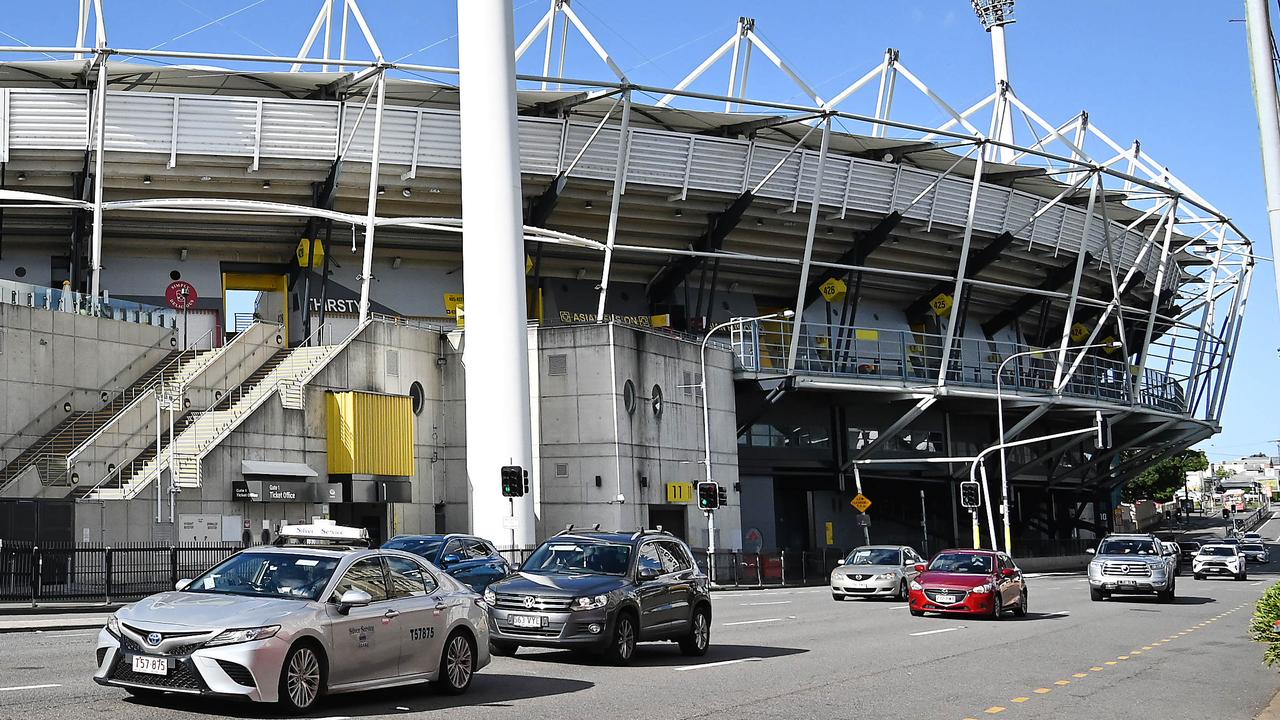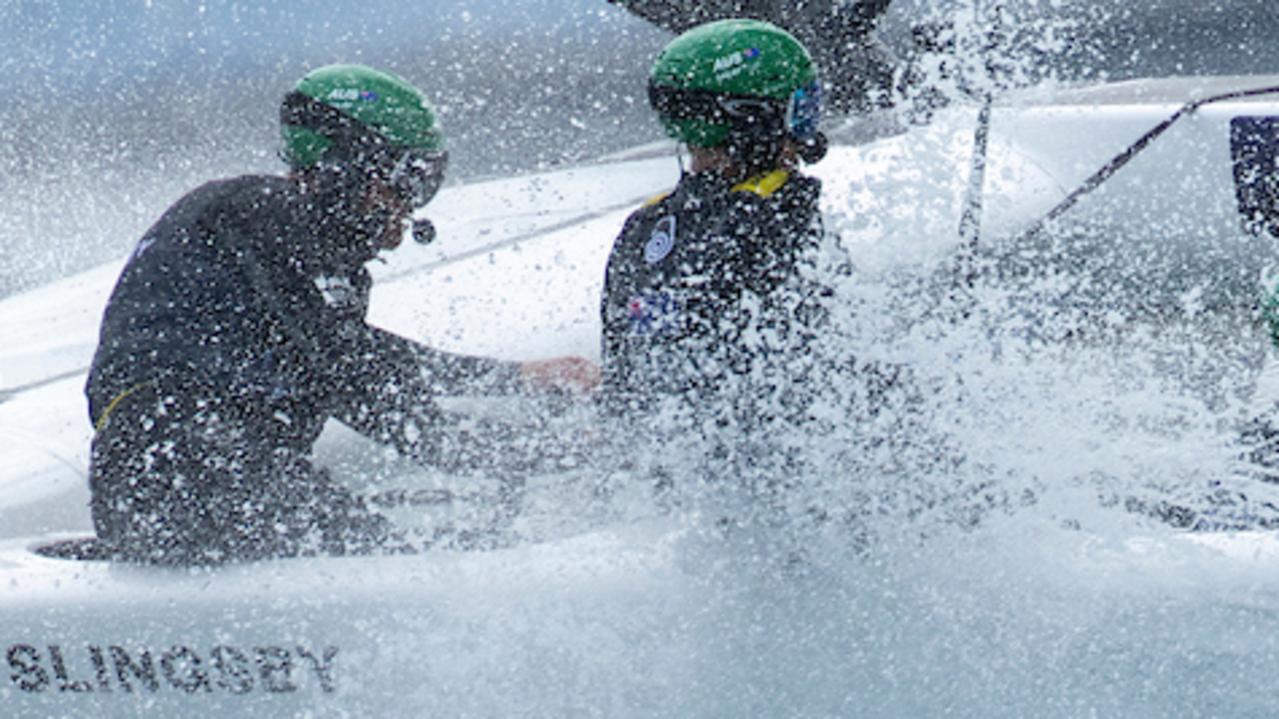Tokyo Olympics 2021: IOC delay the announcement of positive drug cases
Only three athletes have tested positive to illegal substances while in Tokyo leading to accusations that the IOC is deliberately delaying the release of other cases to avoid negative publicity.
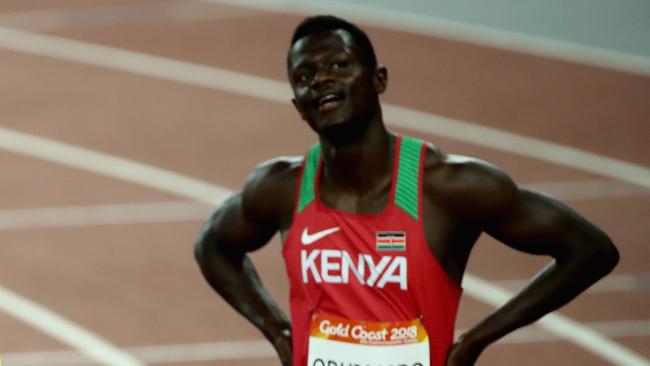
Olympics
Don't miss out on the headlines from Olympics. Followed categories will be added to My News.
The International Olympic Committee has been accused of delaying the release of positive drug cases until after the closing ceremony of the Tokyo Olympics.
Just three athletes have had positive cases in Tokyo, all discovered during out of competition blood and urine testing before their Olympic events.
Swimmers, rowers and track and field athletes from the United States, Australia and China have been most tested throughout the first half of the Games, official data shows.
So far, there have been no positive tests returned by medallists and those targeted during their Olympic competition. This is despite suspicion surrounding a number of a surprise performances in the pool and on the track. A drugs testing insider said that the IOC doesn’t want bad news during the Tokyo Olympics, which has been a challenging logistic exercise because of the pandemic rules.
It is understood that there may be at least three drugs cases during Olympic competition that have not yet been announced, including a competitor in the triathlon discipline.
“From the IOC’s point of view these are the clean games, but this is pretty strange and is disrespectful to the other athletes. Let’s see what the next six weeks brings,’’ the drugs expert said.
The Times in London reported that one of the most high profile Olympic winners, the 100m gold medal winner Lamont Marcell Jacobs has been historically linked to a sports nutritionist who is the subject of a police investigation into the illegal distribution of anabolic steroids and human growth hormone.
Jacobs only beat the 10 second barrier in May this year and wasn’t on the radar of the Athletics Integrity Unit’s drug testing pool.
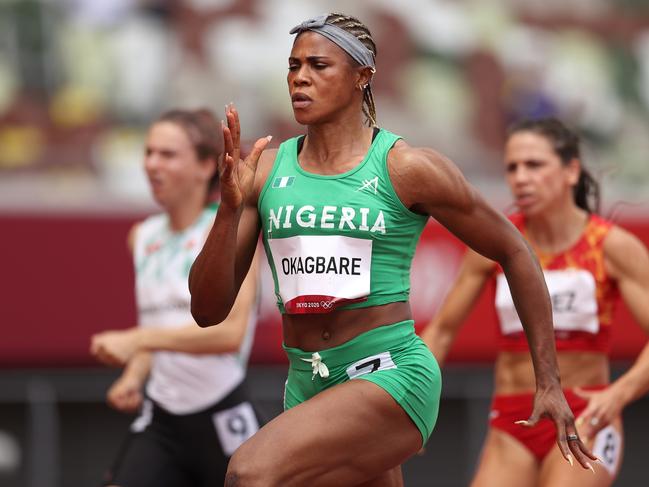
Nutritionist Giacomo Spazzini, a professional bodybuilder who owns a fitness training and sports nutrition business was part of a 2019 police raid called Operation Muscle Bound, the paper said. Jacobs’ agent Marcello Spazzini said Jacobs had split with Spazzini in March this year “as soon as Marcell became aware of the (police) investigation”.
Jacobs, a former long jumper, is a serving police officer in Brescia. Spazzini’s lawyer said that Spazzini, who denies the police allegations, was a friend of Jacobs, and that Jacobs was assisted in a nutritional capacity by other medical professionals in a medical centre run by Spazzini.
It is not suggested Jacobs has returned an adverse drug test result.
The International Testing Agency, which conducts the tests on behalf of the IOC, usually announces drugs positives after the B sample has been confirmed. This has been complicated because athletes are having to leave the athletes village within two days of their competition, and some are insisting on being present for the opening and testing of the B sample.
Georgian athlete Benik Abramyan was ruled out just hours before the shot put event after steroids were found in a test conducted days earlier.
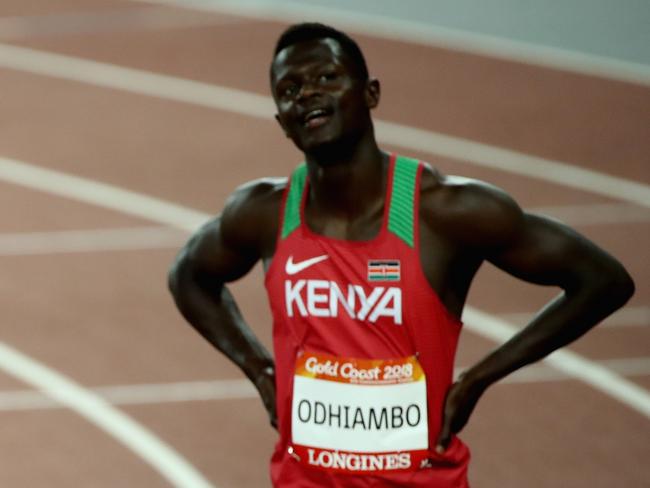
Kenyan sprinter Mark Odhiambo was withdrawn from the men’s 100m heats after he tested positive for an anabolic steroid before the beginning of the competition.
Blessing Okagbare, of Nigeria, was also ruled out of the women’s 100m semi-finals when an out of competition result, showing traces of human growth hormone, came through in the hours before her scheduled race.
She is contesting this finding.
The International Testing Agency, in charge of the IOC drugs program, carried out 5000 samples during the Games. At the midway point, 3100 tests had been carried out, mainly on athletes from the United States, Australia, China, Russia, Great Britain and Canada.
CATCH UP ON ALL THE OLYMPIC ACTION WITH THE TOKYO DAILY PODCAST
The sports most under scrutiny at the halfway point was aquatics, rowing, athletics, cycling and weightlifting. But sources involved in the drug testing say that while a straight forward urine analysis takes around two days to process, the ITA is conducting blood tests and also using the biological passport comparing previous test results, which is taking some time.
At the London 2012 Olympic Games six athletes were disqualified during the Games period, but the total of athletes sanctioned, some up to seven years later, has been 147, including 29 medals, of which 13 were from Russian athletes.
In Rio, eight competitors tested positive during Games time.
Originally published as Tokyo Olympics 2021: IOC delay the announcement of positive drug cases


